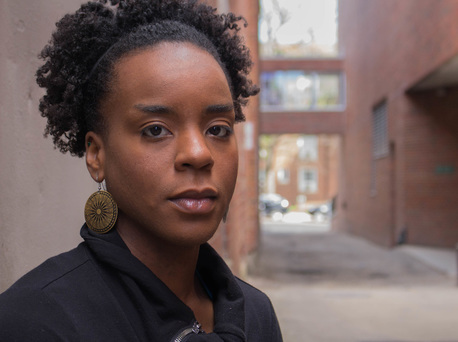
29 Jun Interview with a Playwright: Philana Omorotionmwan
PO: This play began with a prompt – vaudeville. That lead to me watching a lot of YouTube videos of the Nicholas Brothers tap dancing. Around that same time I had become somewhat obsessed with might happen to me if I ever ran down the street late at night in Oakland. (This was shortly after hearing a police officer threaten to “blow [someone’s] head off” as he ran past my bedroom window.) As a result, I began thinking about when people are and aren’t fully allowed to be in our bodies.
BAPF: What role does time play in this story?
PO: The honest answer is I’m still figuring that out. Since the play is set in the future, one function of time is to let us know that this world is like our own but isn’t quite our world.
BAPF: One of your characters, Mary, makes a comment about the difference between masculine (external, seen) and feminine (internal, hidden) loss. Did you identify with this idea?
PO: It’s certainly true in the world of the play that the men’s losses are external, as their bodies are physically altered. In our world, however, it would seem to be the reverse because men are socialized not to talk about or show what they feel. The current conversations, though, about police violence and the criminal “justice” system often focus on the impact on black men. There seems to be less discussion when it comes to the impact on women. Both in terms of women who are direct victims of police violence and those of us who experience victimization more indirectly.
BAPF: Although many scenes begin in different years, the dialogue repeats. What role does repetition have within the play?
PO: In “Elements of Style,” Suzan-Lori Parks writes about the way refrains create a weight and rhythm in poems. I’m a wannabe/failed poet, so I just dig rhythm. But I’m also interested in the weight that the characters accumulate with each repetition. And how moments change even when they appear to be exactly the same as before.
BAPF: Thanks so much Philana! We look forward to seeing Before Evening Comes July 16 at 8 pm and July 24 at 2 pm!



No Comments